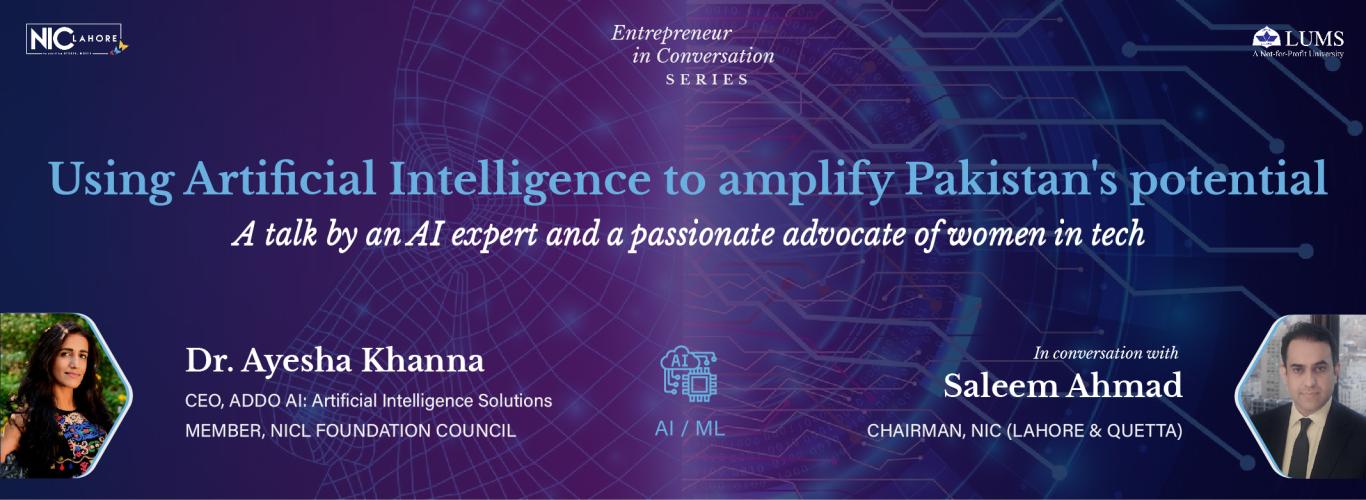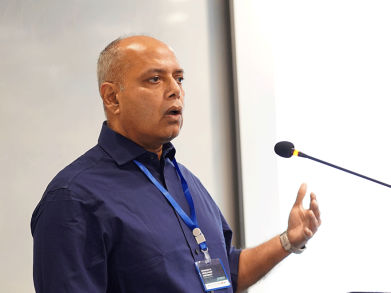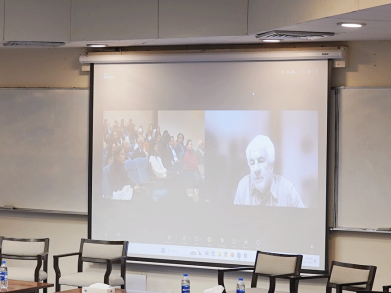Exploring the Role of Artificial Intelligence in Today’s World
What’s the big deal about Artificial Intelligence? How can it be used to amplify Pakistan’s potential? These are just some of the areas Dr. Ayesha Khanna explored in her talk on December 28, 2020, as part of the National Incubation Centre (NIC) Lahore’s ‘Entrepreneur in Conversation’ series.
Named as one of South East Asia’s groundbreaking female entrepreneurs, Dr. Khanna is a renowned Artificial Intelligence (AI) expert. She is Co-Founder and CEO of ADDO AI, a firm that leverages data as a strategic asset to help companies become more competitive. She is member of the Advisory Board of NIC Lahore, a strategic advisor on artificial intelligence, smart cities and fintech to leading corporations and governments.
Although AI may seem like a buzzword in today’s climate, Dr. Khanna notes that the hype is real. In 2019 alone, AI startups attracted around USD 26.6 billion in investment. It is no wonder that ADDO AI draws some of the world’s largest telecommunication companies, banks, healthcare companies, and government agencies as clients. “The 21st century organisation is a very customer-centric organisation, whether that customer is your internal employee, a B2B, or an end consumer. Using data in a responsible and accountable manner really allows you to focus on what matters, which is giving great service to your customer,” she shares.
So what does Artificial Intelligence actually do? Dr. Khanna says that the answer can be narrowed down to three main things: it does repeatable routine tasks, analyses huge amounts of data, and actually acts upon that data as well.
“We’re going into a world where there is not a single job where AI is not involved. So it doesn’t make any sense for anybody, regardless of which field, law, entertainment, food, logistics etc., not to take an interest in AI. The consumer market in Pakistan is exploding, and personalisation is something that AI does really well. If you are in any way involved in selling things online, then AI is very important.” shares Dr. Khanna.
From product searches, and recommendations to offering a personalised experience – AI does it all. Websites like Amazon have leveraged this technology since over a decade to improve the customer experience. Even casual shoppers of the site are familiar with the ‘Customers who bought this also bought…’ section. Dr. Khanna shares that over 30% of Amazon’s revenue comes from this block – and it is all made possible through AI.
She also notes that Pakistan is well-positioned to adopt AI. “Pakistan has two things in its favour. Number one, it has enormous amounts of talent, which lies in our great universities, like LUMS, where the foundation is very strong in computer science or mathematics or statistics. The other thing is that there are a lot of problems that are not solved yet.”
An untapped area is the unbanked. In South East Asia, 58% of 612 million adults do not have banks or credit cards. With a median age of 22 years, Pakistan’s population is very digitally engaged, but only 10% have credit cards. Dr. Khanna shares that banks such as Nubank, based in Brazil, have taken the entire banking experience digital. This simplifies and automates the tedious processes of showing up in person and filling forms. “The core value proposition is to get the data from customers and to make sure they have an easy, simple experience,” adds Dr. Khanna.
Dr. Khanna believes that data-driven digitisation is the next big thing, and embracing this early on will have a payoff. “Your technical team is no longer some back office. Whatever product you are making in, bake in how you will use data. For that, you need proper people who have studied it – you need data engineers and data scientists. And they need to be on your team, and you need to talk to each other.”
A strong and passionate advocate for women in technology, Dr. Khanna believes that there is deep-seated cultural bias against females in the field. One moment in particular stands out in her memory. She recalls helping a little girl make something at an electronic booth while she was volunteering at a kids’ hackathon. Within a short time, the child’s mother took her away and nudged her son forward instead, claiming that the son was better suited for this particular activity. This experience motivated her to found 21C Girls, a charity that delivers free coding and artificial intelligence classes to girls in Singapore.
She says, “I noticed, and still continue to notice, that there are not enough women in our field. I’m not of the belief that you should keep women on your team just because they’re women. I think you should keep women in your team because they are very competent. A lot of the time, women don’t enter the field because nobody gives them the idea that they can do so. There is a place for us in technology and data science.”
Going forward, Dr. Khanna notes that the role of technology and particularly, women in technology will be crucial for Pakistan. “We should really be investing in upscaling with the basics of statistics and programming. I think this is an evolving area and is something that allows every country to leapfrog. If we can collaborate with the right teams together, we can build a lot of advantage economically. I am a big proponent of the women part of it. The majority of new consumers in the market are going to be women. To understand women, and to create products and services for women, you need to either be a woman, or have them on your team.”
To watch the full session of ‘Entrepreneur in Conversation’ with Dr. Ayesha Khanna, please click here.























